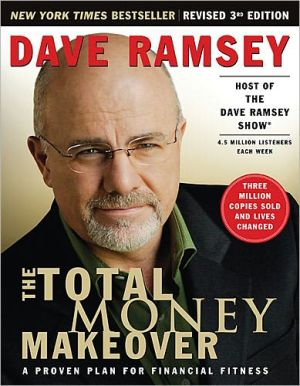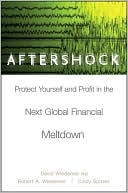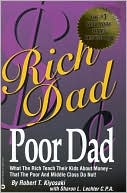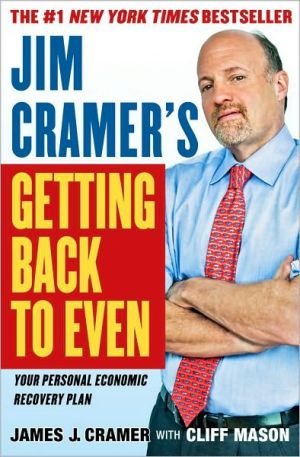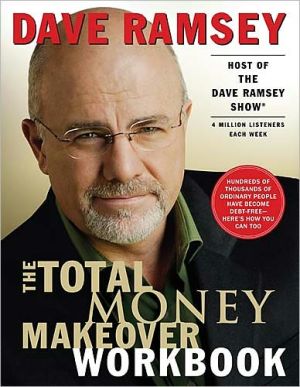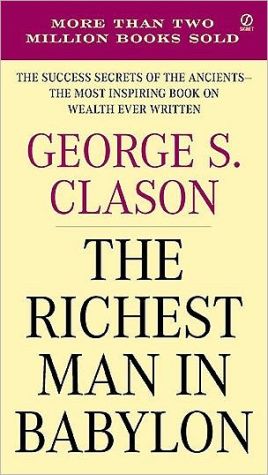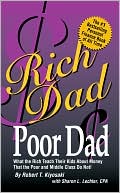Living Well with Bad Credit: Buy a House, Start a Business, and Even Take a Vacation No Matter How Low Your Credit Score
If bad credit has happened to you, there is something you can do about it\ Feeling broke and battered? We know the feeling—heck, everyone knows it. According to the Wall Street Journal, 110 million Americans have bad credit—almost 50% of the adult population. But we don't have to be depressed or discouraged about it. There is life after bad credit. In fact, there's even life during bad credit.\ Living Well with Bad Credit is the right help at the right time. If you're bravely soldiering on...
Search in google:
If bad credit has happened to you, there is something you can do about itFeeling broke and battered? We know the feeling—heck, everyone knows it. According to the Wall Street Journal, 110 million Americans have bad credit—almost 50% of the adult population. But we don't have to be depressed or discouraged about it. There is life after bad credit. In fact, there's even life during bad credit.Living Well with Bad Credit is the right help at the right time. If you're bravely soldiering on despite your finances going south, this informative book is for you. It puts the emphasis on living with bad credit—and living well. Veteran journalist Geoff Williams (AOL' s personal finance blog WalletPop, CNNMoney.com, Bankrate.com) and media powerhouse Chris Balish, an Emmy Award-winning broadcast journalist and author (Living Well Without a Car), have teamed up to bring readers:• Usable tips on how to embrace, and even benefit from, a low credit score• Invaluable advice for dealing with 'lifestyle' events such as how to buy a car or qualify for a credit card with bad credit• Interviews with dozens of experts and successful professionals who share ideas on how to live with the negative effects of bad credit• Practical discussion on topics that go beyond finance, such as healing self-esteem and building relationships in spite of bad creditWhile bad credit can be a setback, it doesn't have to be a roadblock. This expert guide is just the ticket to a better life once again
It is a strange thing that the man who pays cash for all he gets cannot get credit while a man who runs bills habitually can get about all the credit he wants.\ Comment made in the Worth County Index,\ January 3, 1907\ It isn't just this generation that has been saddled by debt. Your grandparents had their own recessions and challenges in making payments to credit card companies and department stores. Back then it was Montgomery Ward and Sears; now it's Walmart and Amazon.com. Even your grandparents' grandparents struggled with money. If you've ever watched the 1970s TV show Little House on the Prairie, that series occasionally mangled the historical truth, but they were right on the money when they suggested that Charles Ingalls would have gotten credit at the mercantile store that Harriet and Nels Oleson owned.\ We know you're anxious about the future, and maybe not all that interested in the past, but it helps to know how you got here. If you don't know what mistakes were made along the way, you can't fix them.\ And as it turns out, credit problems have been brewing for a long time. Of course, for a long time everything worked pretty well, so we're not saying that every decision involving credit and debt for the last century has been built on a foundation of deceit and doom. Credit has a long and honorable history of working well. And yet, it's understandable why you got into debt in the first place. We have a rich history of spending money we don't have.\ Even before the first national credit card—the Diner's Card—came along in 1949, there were credit cards issued by your local friendly neighborhood department store. These started getting popular in the 1930s, during the Great Depression. Nobody had money, and businesses were desperate to at least have the promise of future income. Before that, individual stores would routinely offer credit to their regular customers.\ In fact, one of the first, and maybe the first, credit bureau actually showed up in Brooklyn around 1869, and by the 1890s credit bureaus were pretty commonplace throughout America. In fact, one of those 1890s bureaus, the Retail Credit Company, eventually became Equifax, which is one of the three giant credit agencies today.\ And what's so unsettling about debt history is how familiar everything is. The numbers get higher, but everything else pretty much stays the same. For instance, in 1896 the New York Times ran a detailed story about a lawyer who was having money problems (apparently they never divulged his name, to spare him any embarrassment). Anyway, one morning at breakfast, the attorney's wife handed him a bill for $5. He looked it over and said that the bill was 'a small matter and the man could wait.' Then the wife handed her husband a bill for $200. The lawyer again examined the bill, this time for a longer time. He finally handed it back, saying that the bill 'was a large matter, and the man would have to wait.'\ See? Nothing changes. Human nature is human nature.\ Consider the home equity loan, which seems like a pretty modern way of going into debt, due to its surge in popularity since the 1980s. But they've been around since at least the days of the Great Depression. Back in 1961, a Florida bank, St. Pete Federal, ran a newspaper ad explaining the home equity loan concept to their customers. 'Chances are, you can get more money out of your home than you've put into it,' the bank's ad read, adding that customers could use a home equity loan to 'turn a weekend at the beach into a month in Europe. Turn a ski boat into a yacht.' The advertisement's headline gushed, 'It's like magic.'\ Like magic. No wonder so many of us are in trouble.\ Not that we want to pass the buck (okay, maybe the wrong expression to use). Obviously, ultimately, we as individuals are the ones responsible for our money mismanagement. We signed on the dotted lines. Nobody forced us to get credit cards or take out loans. We have to own our mistakes, and boy, do we own them. But if you're going to beat yourself up, don't think for a second that you got into this all on your own. Banks have been holding your hand and whispering sweet nothings into your ear for quite some time now.\ ©2010. Chris Balish, Geoff Williams. All rights reserved. Reprinted from Living Well with Bad Credit. No part of this publication may be reproduced, stored in a retrieval system or transmitted in any form or by any means, without the written permission of the publisher. Publisher: Health Communications, Inc., 3201 SW 15th Street, Deerfield Beach, FL 33442
Introduction: Bad Credit Happens to Good People viiChapter 1 Welcome to the Land of Bad Credit 1Chapter 2 Banking With Bad Credit 23Chapter 3 Getting A Good Job with Bad Credit 41Chapter 4 Good Housing with Bad Credit 55Chapter 5 Driving: Bad Credit in the Passenger Seat 85Chapter 6 Starting a Business with Bad Credit 95Chapter 7 Living with Bad Credit 115Chapter 8 Avoiding Bad Credit Scams 139Chapter 9 Bad Credit: Psychology 101Chapter 10 Getting Your Good Credit Back and Preventing Bad Credit from Ever Happening Again 181Index 193

